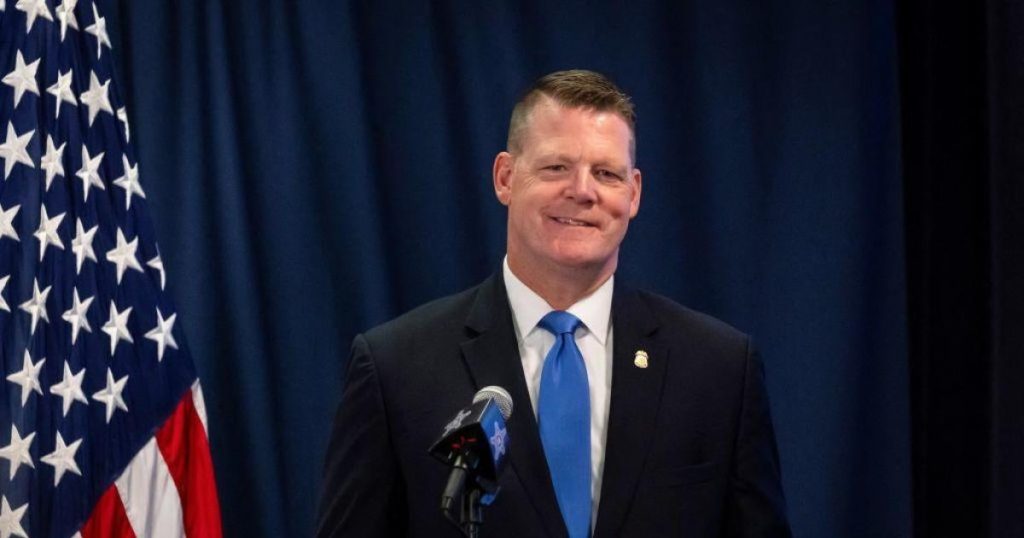US Secret Service Deputy Director Ronald Rowe Announces Retirement After 26 Years of Service
Ronald Rowe, the Deputy Director of the U.S. Secret Service, has announced his retirement after dedicating 26 years of his career to the agency. His decision comes after a tumultuous period for the Secret Service, marked by high-profile security concerns and leadership changes. Rowe, who previously served as the acting director of the agency, stepped into the role after Kimberly Cheatle resigned in July under intense pressure from lawmakers. His tenure as acting director was marked by scrutiny over the attempted assassination of former President Donald Trump at a rally in Butler, Pennsylvania, where a gunman gained access to a rooftop near the event. Rowe’s leadership during this critical time was praised by his colleagues, who highlighted his resilience and commitment to the agency’s mission.
A Career of Service and Leadership
Ronald Rowe began his career with the U.S. Secret Service in 1999, starting in field offices in West Palm Beach and Miami. Over the years, he rose through the ranks, serving in key roles such as the Presidential Protective Division and the Congressional Affairs Program. His extensive experience also included positions as chief of staff and assistant director for the Office of Intergovernmental and Legislative Affairs. Rowe’s deep understanding of the agency’s operations and his ability to navigate complex challenges made him a trusted leader within the organization. Sean Curran, who was appointed as the new director of the Secret Service last month, acknowledged Rowe’s contributions in a message to the workforce, describing him as a leader who stepped into the role of acting director during a pivotal time with “grace, resilience, and a profound sense of responsibility.”
Challenges and Controversies During His Tenure
During his time as acting director, Rowe faced significant challenges, including addressing security failures that led to the attempted assassination of former President Trump. He testified multiple times before lawmakers, providing insights into the incident and the measures being taken to prevent similar security breaches in the future. However, his appearances before Congress were not without controversy. In one notable incident, a hearing last December devolved into a shouting match when Republican Rep. Pat Fallon accused Rowe of “playing politics” for attending a 9/11 memorial event with the nation’s top leaders. Despite these challenges, Rowe remained focused on the agency’s mission, earning the respect of his peers and colleagues.
Gratitude and Appreciation for Rowe’s Service
Rowe’s retirement has been met with a outpouring of gratitude from within the agency and beyond. In a statement, U.S. Secret Service spokesperson Anthony Guglielmi described Rowe as a “valued executive and leader” who dedicated 26 years of his life to serving the agency. Guglielmi noted that Rowe was currently enjoying a well-deserved break before his retirement. Sean Curran, the new director of the Secret Service, also expressed his appreciation for Rowe’s leadership, highlighting his ability to navigate the agency through a difficult period with unwavering dedication. Curran also announced that Darryl Volpicelli, the current assistant director for the Office of Intergovernmental and Legislative Affairs, would serve as acting deputy director in the interim.
New Appointments and a Fresh Direction for the Agency
As the Secret Service prepares for a new chapter under Director Sean Curran’s leadership, the agency is also welcoming new faces. Richard Giuditta, Jr., a political appointee and former partner at a boutique law practice in New York, has been named as a senior adviser to the agency. Giuditta, who has provided strategic counsel to government entities, Fortune 500 companies, and nonprofits, is the first “Schedule C” political appointee to hold this role. Additionally, Curran announced that a senior official from the Intelligence Community will soon join the agency to strengthen its protective mission with technical and covert expertise. These appointments signal a fresh direction for the Secret Service as it seeks to enhance its capabilities and address the evolving challenges of protecting high-profile individuals and events.
A Legacy of Dedication and Resilience
Ronald Rowe’s retirement marks the end of an era for the U.S. Secret Service. His 26 years of service were defined by his commitment to the agency’s mission and his ability to lead during times of crisis. From his early days in field offices to his role as acting director, Rowe demonstrated a deep dedication to protecting the nation’s leaders and upholding the integrity of the Secret Service. While his retirement is a significant moment for the agency, it also represents an opportunity for new leadership to build on the foundation he helped establish. As the Secret Service moves forward, Rowe’s legacy of resilience and service will continue to inspire those who follow in his footsteps.












